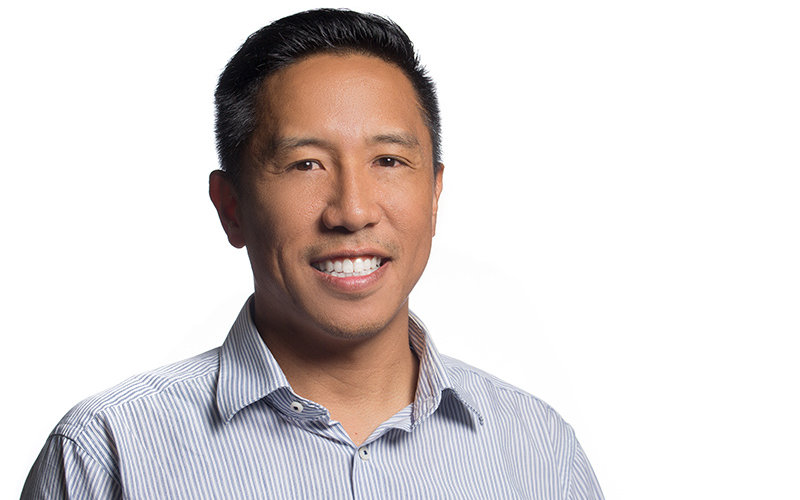
As a native Southern Californian, Phillip Gedalanga has lots of connections to this area. He grew up in San Diego, attended UC Irvine for his bachelor’s degree in applied ecology and doctorate in environmental health science and policy, and completed postdoctoral studies at UCLA.
“It was one of the reasons I came here,” explains the assistant professor of health science who joined the campus this fall. “That and the faculty and department were very welcoming.”
Growing up, Gedalanga says he had a “great appreciation for the outdoors.” He also developed a passion for public health, which developed into an interest in the intersection between the environment and health issues.
What inspired you to go into health science?
It really started to gel when I was in college with the courses I took and the mentorship I received. I remember looking at rivers and creeks and realizing that there was a potential danger to the public health because of bacteria, but we could reduce health risks by looking at elements present in the natural microbial community.
And that interest grew in your research?
My area of interest became centered around water and microbial communities in water resources — do they pose a public health threat and how can we create a more sustainable water supply?
I started getting interested in bioremediation — what bacteria/microbes do we want to encourage to rid contaminants from groundwater?
As I continue my research, I hope to incorporate students in the work. I want to encourage undergraduates in research endeavors, such as sampling, and to gain lab experience.
What do you hope students get from your classes?
I definitely hope that they develop a deep appreciation for the environment and realize that the choices they make have an impact on the environment and can influence public health.
What would you like the general public to know about your research?
It is important for the public to be more aware of microbial water quality. There are natural microbes present in water that provide no threat to us. Hopefully, we can use such microbes to help us discover when there is a problem and develop an understanding of microbial communities in these environments so we can use them in positive ways.